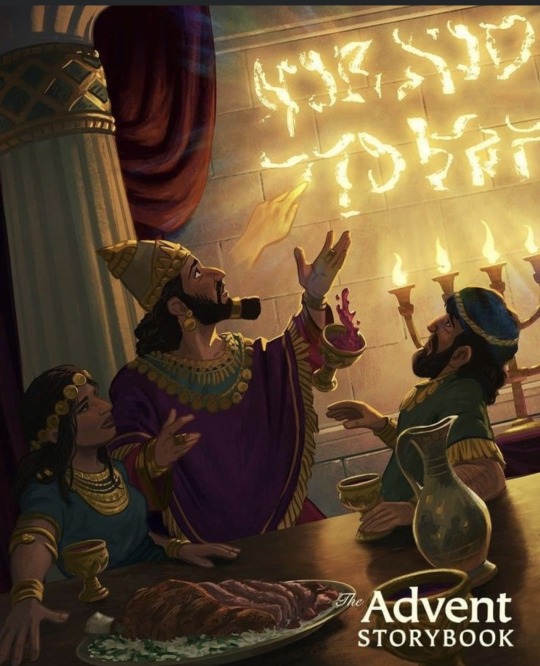Don't wanna be here? Send us removal request.
Text
0 notes
Text
0 notes
Text
0 notes
Text

Who was Belshazzar?
Belshazzar was the last king of ancient Babylon and is mentioned in Daniel 5. Belshazzar reigned for a short time during the life of Daniel the prophet. His name, meaning “Bel protect the king,” is a prayer to a Babylonian god; as his story shows, Bel was powerless to save this evil ruler.
Belshazzar ruled Babylon, a powerful nation with a long history and a long line of powerful kings. One of those kings was Nebuchadnezzar, who had conquered Judah, bringing the temple treasures to Babylon along with Daniel and many other captives. Belshazzar was Nebuchadnezzar’s grandson through his daughter Nitocris. Belshazzar calls Nebuchadnezzar his “father” in Daniel 5:13, but this is a generic use of the word father, meaning “ancestor.”
During his life, King Nebuchadnezzar had encountered the God of Israel’s power and was humbled by Him (Daniel 4:34–37), but twenty years after Nebuchadnezzar’s death, his grandson Belshazzar “praised the gods of gold and silver, of bronze, iron, wood and stone” (Daniel 5:4). One fateful night in 539 BC, as the Medes and the Persians lay siege to the city of Babylon, King Belshazzar held a feast with his household and a thousand of his noblemen. The king demanded all the gold and silver cups and vessels plundered from the Jewish temple be brought to the royal banquet hall. They filled the vessels with wine and drank from them, praising their false gods (Daniel 5:1–4). The use of the articles from the Jewish temple was a blasphemous attempt for Belshazzar to relive the glory days of his kingdom, to recall the time when Babylon was conquering other nations instead of being threatened with annihilation from the Persians outside their walls.
As the drunken king reveled, God sent him a sign: a human hand appeared, floating near the lampstand and writing four words in the plaster of the wall: “MENE MENE TEKEL PARSIN.” Then, the hand disappeared (Daniel 5:5, 25). The king paled and was extremely frightened; he called his wise men and astrologers and enchanters to tell him what the writing meant, promising that “whoever reads this writing and tells me what it means will be clothed in purple and have a gold chain placed around his neck, and he will be made the third highest ruler in the kingdom” (verse 7). But none of the wise men of Babylon could interpret the words.
Hearing a commotion in the banquet hall, the queen (possibly Nitocris or even Nebuchadnezzar’s widow) came to investigate. She remembered Daniel as one whose wisdom Nebuchadnezzar had trusted, and she told Belshazzar to summon the Jewish prophet (Daniel 5:10–12). Daniel was brought before the king, but he refused the gifts Belshazzar offered him—the kingdom was not his to give, as it turned out (verse 17). Daniel rebuked Belshazzar’s pride: although the king knew the story of how God humbled his grandfather, he did not humble himself. Instead, he dishonored God by drinking from the sacred items of the temple (verses 22–23). Then, Daniel interpreted the words on the wall. Mene means “God has numbered the days of your kingdom and brought it to an end.” Tekel means “you have been weighed in the balances and found wanting.” Parsin means “your kingdom is divided and given to the Medes and Persians” (Daniel 5:24–28). Daniel never revealed what language those words belong to.
That night, the Persians invaded. Cyrus the Great, king of Medo-Persia, broke through the supposedly impenetrable wall of Babylon by cleverly diverting the river flowing into the city so that his soldiers could enter through the river duct. Historical records show that this invasion was made possible because the entire city was involved in a great feast—the feast of Belshazzar mentioned in Daniel 5. “That very night Belshazzar, king of the Babylonians, was slain, and Darius the Mede took over the kingdom” (Daniel 5:29–30). The demise of King Belshazzar illustrates the truth of Proverbs 16:18, “Pride goes before destruction, a haughty spirit before a fall.”
0 notes









